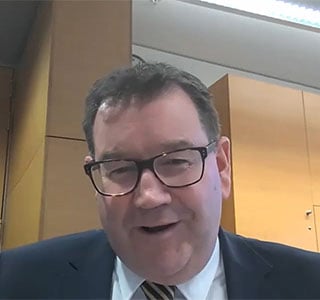Watch: Grant Thornton New Zealand Post Budget event 2023
Our industry experts share what they wanted to see delivered in Budget 2023 and how this year's announcement impacted some of New Zealand’s key sectors. Read on to discover where the opportunities and roadblocks lie in this year’s announcement.
Read more

Budget 2023
Watch: Grant Thornton New Zealand Post Budget event 2023

Budget 2023
Post-Budget analysis: Which wishes did you Grant, Robertson?
Our industry experts share what they wanted to see delivered in Budget 2023 and how this year's announcement impacted some of New Zealand’s key sectors. Read on to discover where the opportunities and roadblocks lie in this year’s announcement.

Budget 2023
Empowering NZ’s Not for Profit sector: Key priorities for Budget 2023
At the moment, the Non for Profit or For Purpose sector (NFP) in New Zealand reminds me of a punch-drunk boxer – a fighter who has taken a heck of a beating in recent years but continues to do good mahi anyway.

Budget 2023
Budget 2023: How can we reduce the pressure on overworked GPs?
General practitioners are under immense pressure – working long hours (often unpaid), facing staff shortages, and experiencing high rates of burnout. Too few young doctors are becoming GPs, leaving the profession facing an exodus as aging practitioners prepare to retire.

Insight
Budget 2023 and our aged care crisis: Time to stop short-term thinking and start future proofing the industry
The aged care sector in New Zealand has been neglected for too long by successive governments, and now, we are starting to see the outcomes of this neglect. Care home closures regularly make the headlines, and sentiment from operators within the industry is grim.

Insight
Budget 2023: Can the Government walk the tax tightrope without wobbling?
With enormous and inexorable spending commitments barrelling toward us, collecting revenue to cover those costs is a priority for the 2023 Budget. But with an election impending, it needs to keep voters sweet, giving them a sugar hit of positive spending, without any unwelcome tax changes.

Insight
Budget 2023: Sustainable construction choices should be rewarded
In the lead up to last year’s Budget, we wrote about a build-to-rent asset class to incentivise the construction of long-term rentals – and it actually happened. So while we’re on a roll, for Budget 2023 we’re going to be even more ambitious.

Budget 2023
Sustainable economies need bold Budgets, not business as usual
The Budget is an exercise in resource allocation – trying to divvy out a limited pool of money across an almost endless list of New Zealand’s needs and wants. Nearly infinite demand but restricted resources: it’s the underlying challenge for all economics. But with some creative thinking and ideas, Budget 2023 can deliver meaningful outcomes for people and the planet.

Fast facts
Summary: Budget 2023
Initially touted as a “no frills” budget, this year’s announcement largely lived up to that expectation, with few surprises or major initiatives included.









